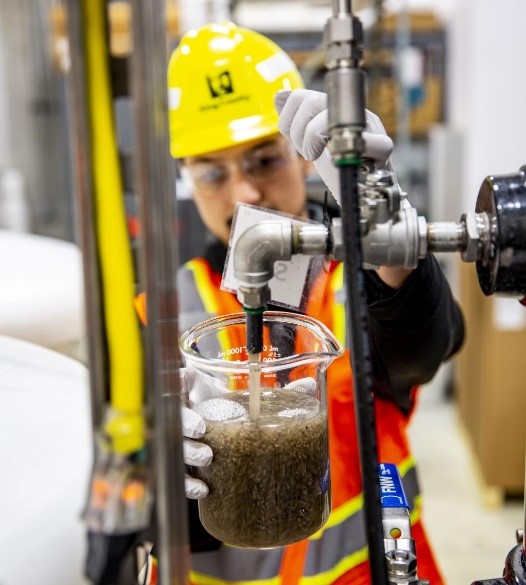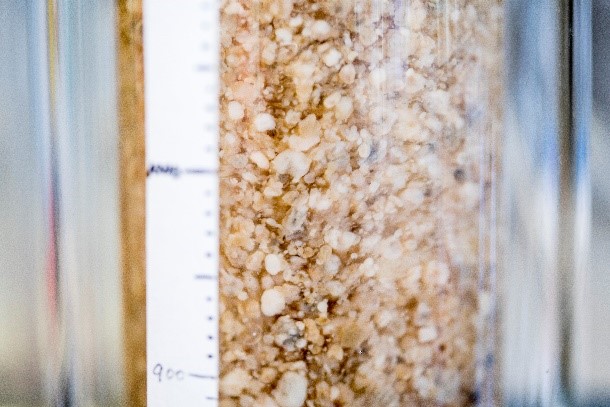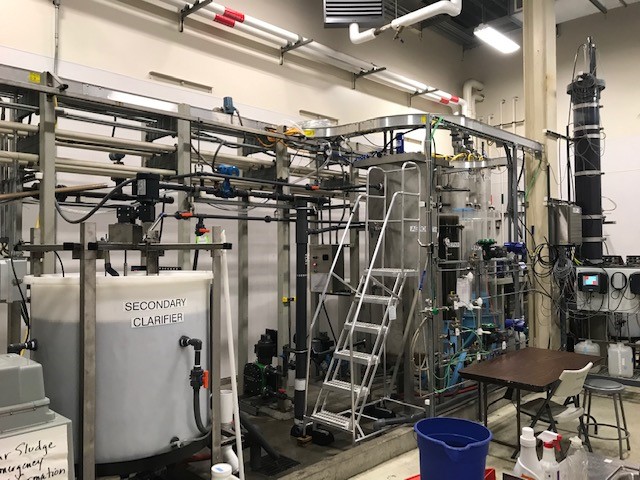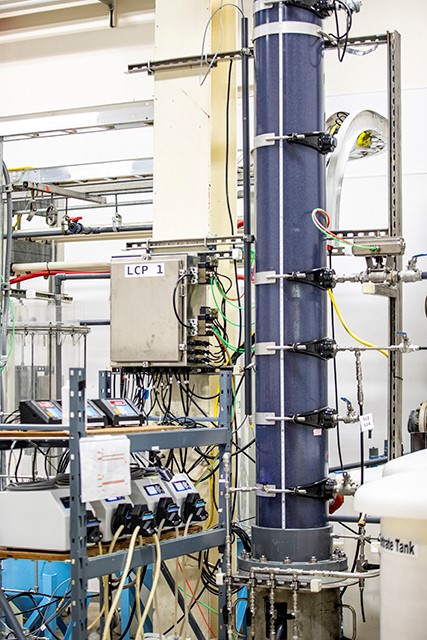Bioaugmentation of Activated Sludge with Nitrifying Granules
This study pilots an innovative biological nitrogen removal process technology. The process is intended to provide nitrogen removal by bioaugmentation of granular sludge into conventional, non-nitrifying flocculant mixed liquor.
Aerobic granular sludge is a new approach to activated sludge treatment and is characterized by spherical shaped, dense biomass of 1.0 to 3.0 mm diameter with settling velocities at least 10 times that of flocculent sludge. The process has the potential to reduce required bioreactor volume compared to other conventional nitrogen removal secondary processes operating with flocculent sludge. The ability to uncouple the solids retention time (SRT) of the granules and flocculent sludge (selective retention) provides a long SRT to increase the nitrification capacity of the secondary process significantly due to the high solids concentration of dense granules.
The work involves pilot testing at King County’s West Point Treatment Plant and is in cooperation with the University of Washington, the Water Research Foundation (WRF), and the National Science Foundation (NSF).
Read final report HERE.
More about the study HERE.
Read final Armenta thesis HERE.
Read final Cater thesis HERE.

 Translate
Translate



